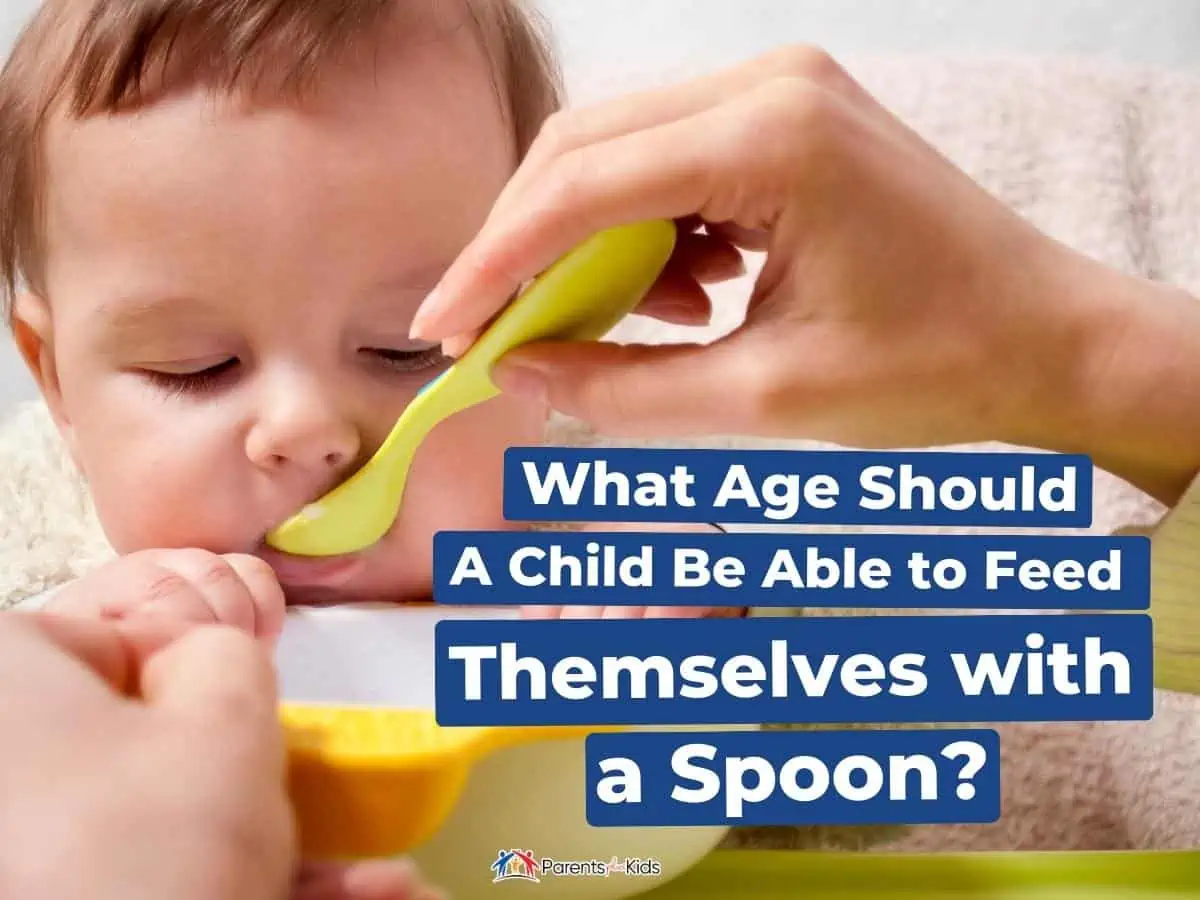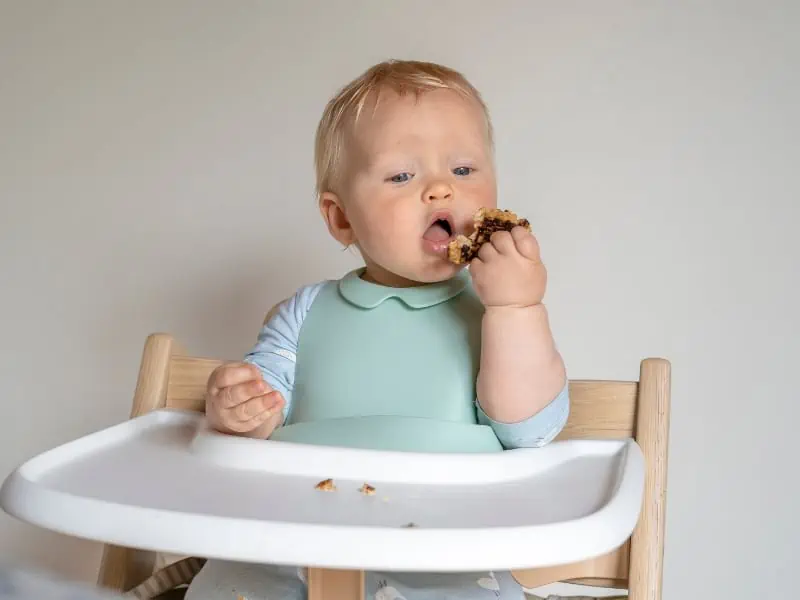What Age Should a Child Be Able to Feed Themselves with a Spoon?

This post may contain affiliate links. If you buy through the link, I may earn a commission. Learn More.
Your baby is constantly growing and changing. It is fascinating to watch the progress they make with each passing day.
You may wonder if your child is following a normal development curve, especially when it comes to fine motor skills.
When should your baby be able to use a spoon?
What Age Should a Child Be Able to Feed Themselves with a Spoon?
Most children are able to feed themselves with a spoon at around 10 to 12 months old. It’s okay if your child starts doing this a bit earlier or a bit later. If your child is not self-feeding with a spoon by their first birthday, begin working on activities that encourage fine motor skills.
The Messy Eater

Your baby’s first bite of real food probably occurred around six months old. That first taste of strained peas or rice cereal was extraordinarily exciting for everyone involved.
Before you knew it, your baby was grabbing the spoon from your hands, eager to take charge of the feeding.
However, the success of getting food into the mouth with a spoon has been hit or miss. You soon have a huge mess to clean up. Does that sound familiar? If it doesn’t yet, it soon will.
All babies go through a messy eating phase. In fact, some of them never really outgrow it. My husband is still in that phase, and he’s 52.
Even with messy eaters, at some point, there is at least as much food in their mouths as on their clothing, the high chair, the floor, and your hair. This will happen around the time your baby is nearing their first birthday.
Developing Fine Motor Skills

Your baby is going to start eating with their hands right around the time you start feeding them solid food. The addition of utensils is less messy (theoretically), but it also helps them develop fine motor skills.
Fine motor skills are those skills that are used to manipulate objects using precise movements with muscles in the hands and wrists.
Children who seem to be slow to pick up the spoon may need encouragement to develop those muscles.
Give your baby a rattle or a soft block to grasp. Provide non-toxic clay and show your baby how to poke holes into the soft material. Play games like “pat-a-cake.”
- Keep Baby Occupied for Hours: It’s hard to keep the babies occupied for a while, but LiKee can…
- Help Develop Motor Skills: There are 6 cords of different shapes, some are easy to grasp and pull,…
- Explore Different Textures: The textures on the pipes and pipe ends are varied, the ropes are soft…
A trick I learned with my son, whose fine motor skills developed later, was to have him pick up items with tongs. The use of tongs helped to build those muscles in his hands while giving him a fun activity.
Most of all, let your baby do things on their own. Allow them to try to self-feed. Even if they get frustrated, the more they try, the more successful they will be.
It is not uncommon for a delay in fine motor skills to be caused by a child’s lack of practice. If you insist on feeding your baby with a spoon, they won’t learn how to hold the spoon on their own.
If you regularly pick up their toys for them, they won’t have the need to develop those crucial skills.
What to Do When There Are Problems
It is normal for kids to develop at different ranges. Don’t worry if your child is not perfectly following the guidelines for age development.
Still, as a parent, you do need to be on the lookout for any signs of a fine motor skill delay. The tell-tale signs are a lack of interest in holding small items and the inability to grasp objects.
There are some issues that can cause fine motor skill delays. A lack of musculature in fingers, hands or wrists may be the culprit. This might require occupational therapy.
An undiagnosed disability may also be the cause. The good news is that your doctor will be able to determine very quickly if there is any reason to worry.
Pediatricians generally start testing for fine motor skills around the baby’s two-month check-up. Any issues that require intervention are often found well before the 12-month visit.
Key Takeaways
There is rarely a reason to worry if a child is not spoon-feeding by their first birthday. Your child’s pediatrician should be able to tell if fine motor skills are adequately developing at a well-child check.
What are some of your concerns about self-feeding? Share them in the comments!

